|
More and more studies have shown that plant-based diets are the way of the future. Not only is it a more sustainable way of living that ultimately contributes to a greener planet, but research suggests that it’s better for your health, too, promoting longevity, amongst other benefits. For those who are new to plant-based diets, getting that daily protein fix is often something that becomes a major concern. The most common misconception when it comes to plant-based diets, is that one is at risk of not getting enough protein. Fortunately, there are a number of plant-based options that are protein-packed—and delicious, too!
Before delving into what plant-based protein is, let’s quickly discuss what a protein is. All proteins are built from chains of amino acids. Our bodies need nine particular amino acids to support protein tissues in the body, and because animal proteins contain all nine of the essential amino acids our bodies need, they’re considered as the most complete sources of protein. Simply put, plant-based protein is any protein source that doesn’t come from an animal. While plant-based proteins may lack one or more of the nine essential amino acids that one’s body requires, it is absolutely possible to meet our bodies’ protein needs without animal products. In a 24-hour period, you’ll most likely acquire all the essential amino acids due to the meals you eat throughout the day. Your liver will help store the amino acids that your body uses at a later time, collecting what your body needs. So, while plant-based protein sources may not have all nine essential amino acids that you need, your body—being the ingenious apparatus that it is—will naturally figure out a way to ensure that you get the amino acids for it to operate smoothly. (Assuming, of course, that this diet is a balanced one and not filled with vegan junk food.) It’s also not necessary for those who are considering going on a plant-based diet to worry about eating and combining different types of plant proteins to “collect them all” in one meal. You simply need to ensure that you are eating enough total calories and a wide range of plant-based foods. Why is protein important?So, why all the hoopla around protein? Why is there such an obsession over “getting enough protein”? When you hear people refer to protein as the body’s “building block,” this is actually quite a literal analogy. Protein is an important component for the growth and repair of all cells and tissues in your body. It also plays a crucial role in major bodily functions, including blood clotting and vision. When you don’t get enough protein in your diet, you can suffer from protein deficiency, and though quite rare, its consequences can become dire. Low protein intake, however, can nonetheless cause subtle changes in your body over time, leading to a number of health issues and affecting your body’s composition. Some symptoms of low protein intake include: edema (swollen, puffy skin); fat accumulation of liver cells, which can lead to inflammation, liver scarring, or failure; nail and hair problems, such as brittle nails and thinning hair; loss of muscle mass; and increased likelihood of infections. Needless to say, protein is a key aspect to consider when it comes to one’s diet, especially diets of those in their developmental stages. How much protein do I need? It’s important to note, though, that more is not necessarily better when it comes to protein. When your body has used up the protein it requires to function, the remainder will simply be used up as energy. When it comes to protein, getting just enough is the way to go. Because every person’s physical make-up is different, we all have different protein requirements. A middle-aged male who weighs 178 pounds will not have the same needs as a teenage female who weighs 112 pounds. Conveniently, body weight has been determined as the most important factor when it comes to protein requirements. For the average person, this can be calculated by multiplying 0.4 grams of protein for each pound of body weight, according to scientists. Athletes and older individuals require more grams of protein per pound; for athletes, the number is 0.9 grams, whereas for older individuals, the number is 0.5 to 0.7 gram per pound of body weight. Is plant-based protein as good as animal protein?Remember when we talked about those amino acids and how all animal proteins contain the nine essential ones that our bodies need, making them “complete” proteins? Well, the inverse of that are incomplete proteins, and plant-based proteins are often classified as such because only a handful of plant-based proteins count as complete ones. Those include soy products, such as tofu and edamame, and quinoa. But despite the fact that many plant-based proteins are considered to be incomplete proteins, animal proteins are still not entirely necessary for good health. Incomplete, plant-based proteins are usually only missing one or two amino acids, and these can be made up by eating other plant-based proteins that end up being complementary, coming together to become complete proteins. Why you may benefit more from plant-based protein than animal protein As discussed above, as long as you are eating a wide variety of plant-based food—and specifically, protein—you’ll be sure to get all the amino acids your body needs. Beyond that, though, there are actually a number of benefits to trading in animal protein for plant-based protein. In addition to prolonging your life by eating more plant-based protein through helping to boost your heart health (red meat linked to illnesses such as diabetes and heart disease), eating a plant-based diet may also help you lose that stubborn excess weight. Perhaps most importantly, opting for plant-based protein will actually benefit the environment, effectively lowering your carbon footprint and boosting environmental sustainability. What are the key sources of plant protein per serving?There are a number of excellent plant proteins you can include in your meals to maintain a healthy diet. We’ve put together a list of some of our favourite ones: Types of plant protein 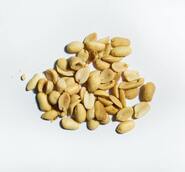 1. Nuts Nuts are a great way to incorporate an extra dash of protein in your diet. Whether you have it as a snack or it’s used in a recipe, nuts are reported to help lower your risk of diabetes and heart disease. The recommended daily intake of 1.5 ounces is all you need, with almonds containing 9 grams of protein, and cashews containing 8 grams in the same amount. 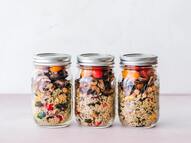 2. Quinoa Quinoa is a complete plant-based protein, making it one of the best plant-based protein options. It acts as a great protein-forward base for any meal, featuring 8 grams of plant-based protein per cup. Quinoa is also a great source of fibre, as well as other vitamins and minerals. This very flexible protein works for almost every dish featuring a grain, perfect for breakfast, lunch, dinner, or even in desserts.  3. Seitan Seitan is a staple amongst vegans. Made of vital wheat gluten, the main protein found in wheat, seiten is a great meat replacement with its hearty texture. Just 3 ounces of seitan contains 20 grams of protein. In addition to natural foods stores, seitan can be found in most grocery stores as well. 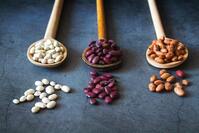 4. Soy Even those not on plant-based diets are familiar with soy products. From tofu to soy milk, soy is one of the best plant-based proteins that’s coincidentally chock full of protein and is versatile enough for any meal of the day. Another less popular variety of soy includes tempeh, and like tofu, it can be used as a meat replacement while boasting 17 grams of protein per ½ cup. 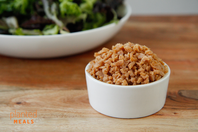 5. Textured vegetable protein (TVP) Technically, this should be a subsection underneath soy, since textured vegetable protein (or TVP) is a soy product and contains a derivative of soybeans. This low-fat plant protein is used by many vegans as a meat replacement thanks to its chewy mouthfeel. Since soy is a terrific source of plant protein, TVP is one as well. Not only is it inexpensive, but TVP is easy to cook, too, and take on flavours easily since it doesn’t have much of a taste on its own. In ¼ cup of TVP, you’ll find an impressive 12 grams of protein. What’s more is that TVP is actually a complete protein, containing all nine of the essential amino acids we were talking about earlier. It’s no surprise that TVP has become such a popular plant protein amongst vegans. 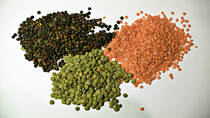 6. Lentils Rich in fibre, vitamins, and minerals, lentils are also full of protein. In just ½ cup of cooked lentils, you can find 9 grams of protein. Lentils also carry anti-obesity, anti-cancer, anti-inflammatory, and anti-diabetes properties. Many other legumes, including beans, peanuts, and peas, are also high in plant-based proteins. Check out our article on how to include more legumes into your diet. 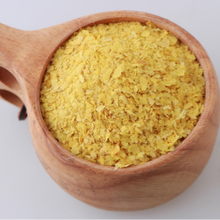 7. Nutritional Yeast It’s no secret that we love nutritional yeast. Also known as “nooch,” nutritional yeast is a cheesy, unctuous powder that’s become one of the most popular ingredients in the plant-based world. Packed with B vitamins, antioxidants, fibre, and a number of minerals, this versatile product also contains a lot of protein. In just one quarter cup, you can find 8 grams of protein in nutritional yeast. Needless to say, this isn’t an exhaustive list of all plant-based protein sources. Almost all plant food contains some protein, including ones you may not consider to be “protein foods” like broccoli and rice. While they may not have a lot of protein, the protein in the food you eat ultimately adds up to make up your daily requirement. Because of this, there’s no need to worry whether or not you’ll be getting enough when you’re ready to switch to a plant-based diet. You will get enough plant-based protein—we promise! Plant-Based Protein RecipesNow that we know why plant-based proteins are the way of the future, here are some of our favourite plant-based protein-packed recipes to cook, perfect for any day of the week! 1. Dark Chocolate Hemp Energy Bites Via Minimalist Baker Especially great for those on the run and have to maintain a hectic schedule, these Dark Chocolate Hemp Energy Bites are vegan, absolutely delicious, and are packed with plant-based protein. Each serving features 4.1 grams of protein! 2. Seitan & Black Bean Stir-Fry Via BBC Good Food We don’t mean to exaggerate, but this Seitan and Black Bean Stir-Fry is nothing short of addicting. Featuring a sticky sweet and spicy sauce, this quick stir-fry features seitan, peanut butter, and a mix of your favourite vegetables. Best of all, each serving contains 22 grams of plant-based protein. 3. Hearty vegan minestrone Via Chatelaine Every season is soup season! This minestrone from Chatelaine is jam-packed with vegetables and pasta that’s sure to satisfy, and it features 18 grams of plant-based protein per serving. 4. Smoky Chickpea Pizza with Labneh Via Food Network Canada Pizza? Yes, please! This Smoky Chickpea Pizza stars smoky stewed chickpeas and labneh, which is Lebanese cream cheese. Want to make it vegan? Just sub the labneh with your favourite plant-based cheese! 5. Smashed Chickpea Salad Sandwiches Via The Kitchn There’s nothing quite like a sandwich; these portable meals are versatile and quick to put together. This smashed chickpea salad sandwich recipe from The Kitchn features all the flavours and textures you want in a perfectly scrumptious sandwich. Best of all, it features hearty chickpeas, making it chock full of plant-based protein. Evidently, plant-based proteins aren’t only present in a number of different types of food, but they’re easy to incorporate in everyday meals! Want to learn more about how to adopt a plant-based diet and how to avoid the common pitfalls when newly embarking on a vegan lifestyle? Visit The Root for more articles on the topic. What’s your favourite plant-based protein? Let us know in the comments!
1 Comment
7/23/2021 07:53:43 am
Amazing blog, I'm very happy to read this blog. Basically, I know new many things to read this blog. I strongly believe that the blog delivers the best information to its audience.
Reply
Leave a Reply. |
Archives
May 2022
Categories |
Services
|
Questions? Email us at [email protected]
|
Copyright © 2020 | Planted Meals All Rights Reserved | Powered by Actualize8

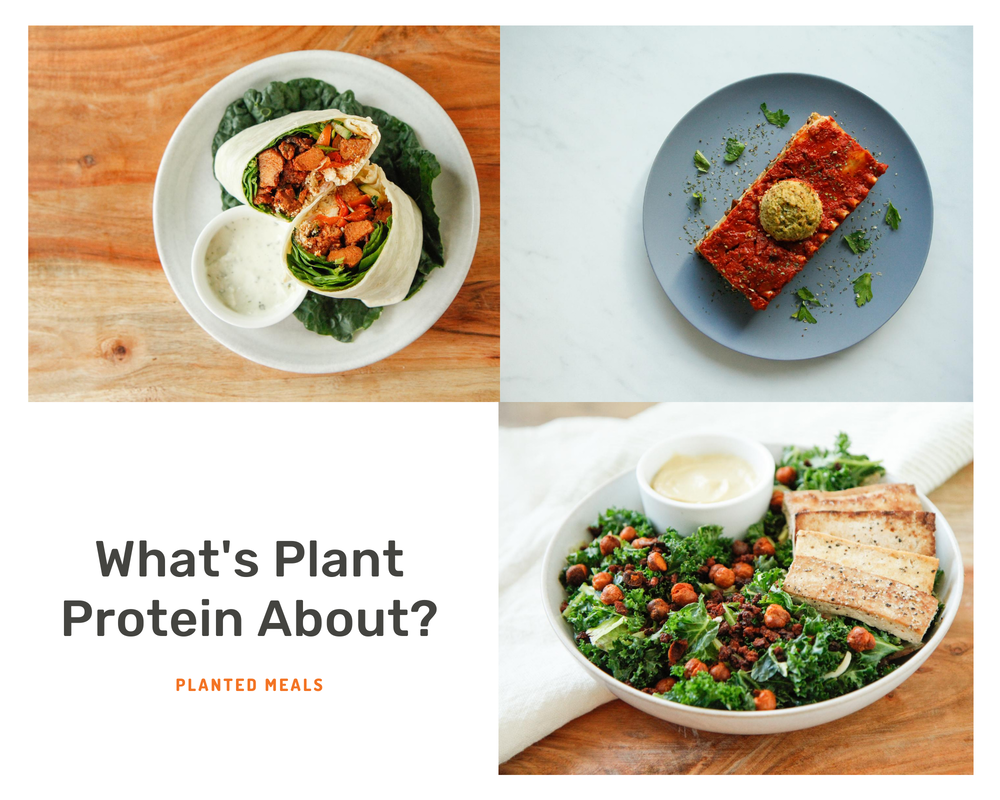

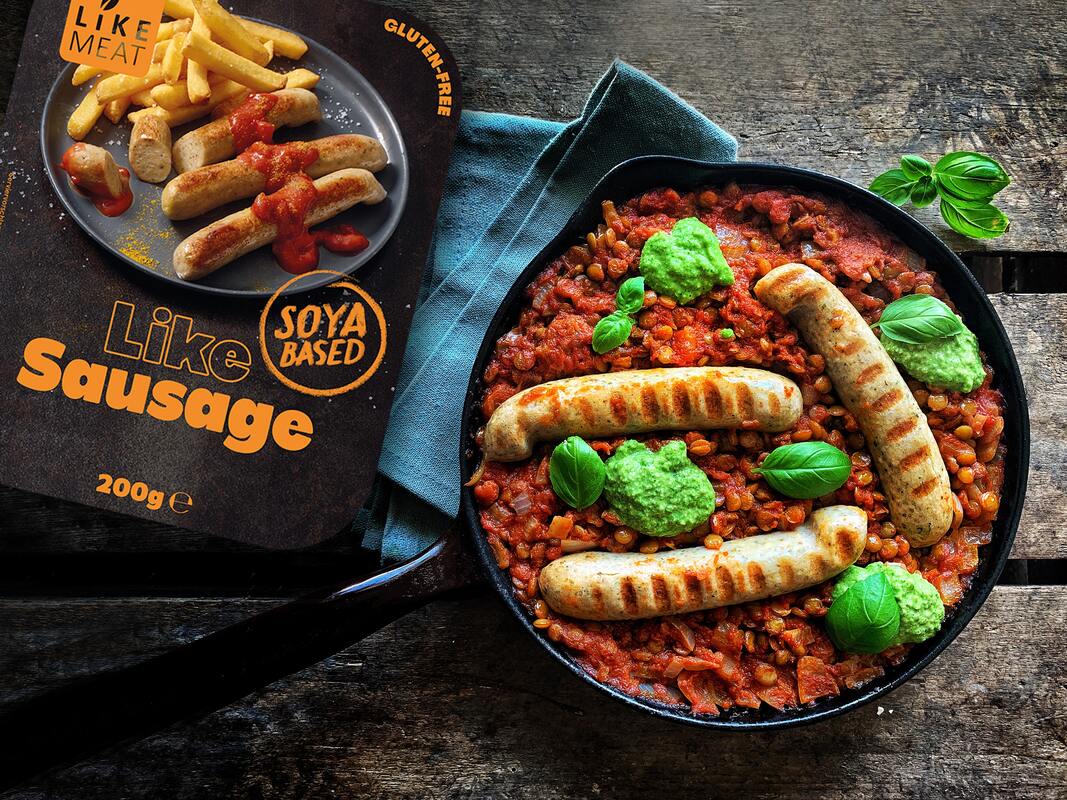
 RSS Feed
RSS Feed